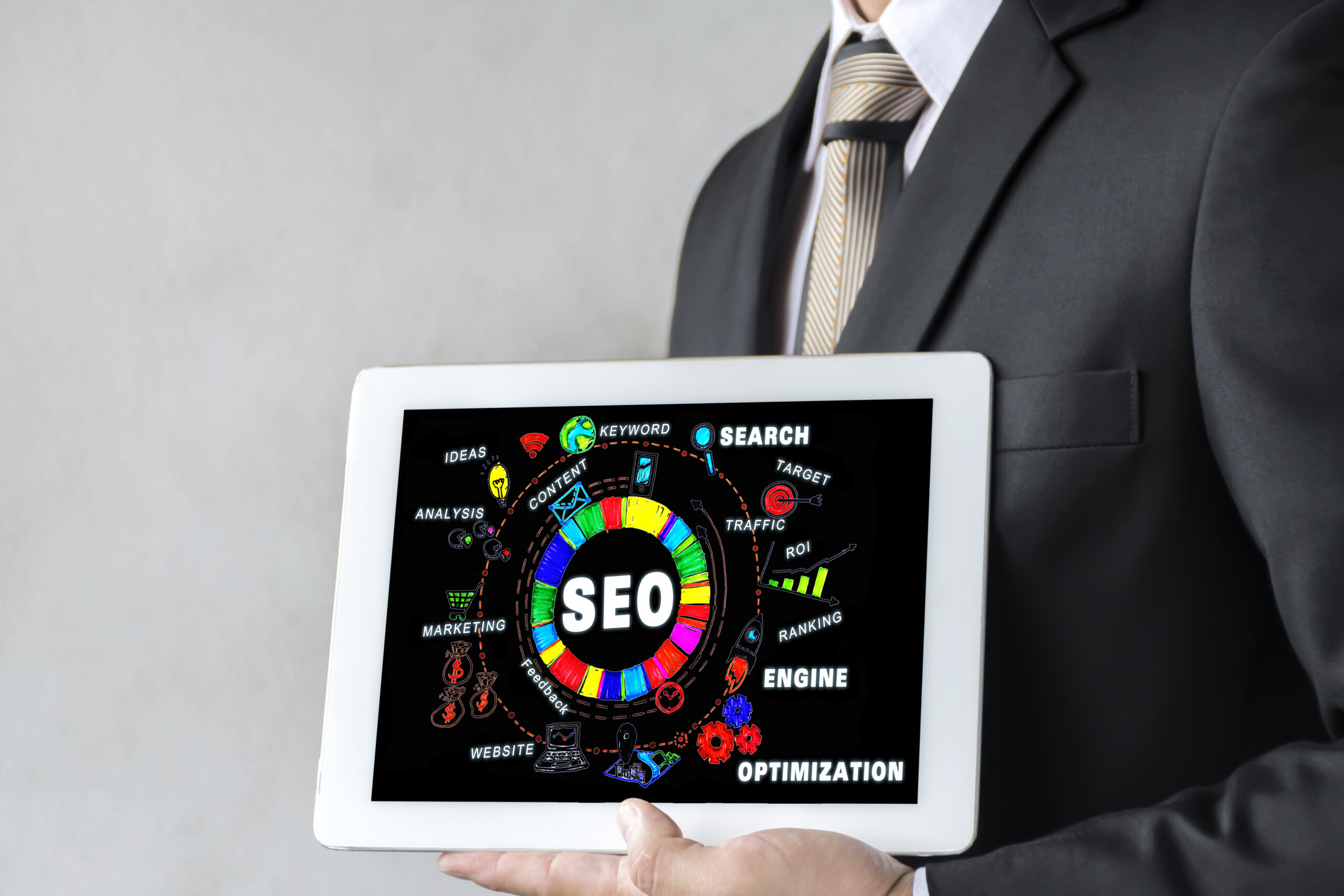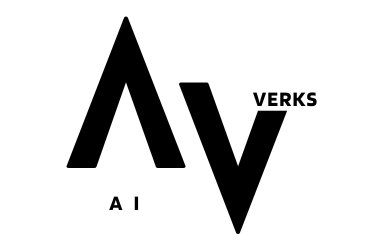Introduction
In a rapidly evolving digital landscape, Artificial Intelligence (AI) has become the driving force behind many industries, and search engine optimization (SEO) is no exception. SEO has always been about adapting to the changing rules and algorithms of search engines to achieve visibility, attract traffic, and engage users. But today, the rules have shifted dramatically with AI taking center stage. As AI’s capabilities evolve, so too do the possibilities within SEO—from precise keyword research to personalized content and predictive analysis.
This blog will explore how AI is transforming SEO, examining specific AI technologies, tools, advanced strategies, real-world case studies, and potential challenges. For anyone looking to stay ahead in SEO, understanding and implementing AI is now essentials.

What is AI in SEO?
Artificial Intelligence in SEO refers to the application of machine learning algorithms and data-driven insights to improve content rankings, enhance user experiences, and optimize digital presence across search engines. SEO has evolved from being keyword-focused to being data-centric, and AI is the catalyst making this transition possible. By analyzing vast data sets, AI enables more accurate keyword research, user intent understanding, and strategic automation of SEO tasks.
A quick look at how AI operates within SEO reveals that it does not merely automate tasks. It brings a deeper understanding to SEO processes—be it through content optimization, personalization, or predictive trend spotting.
Why AI is Crucial for Modern SEO
Traditional SEO has been largely dependent on trial and error, often requiring extensive manual effort to stay relevant in search rankings. But with AI, SEO strategies have evolved to become data-centric, adaptable, and faster. Here are some key reasons why AI is essential in modern SEO:
- Precision Personalization: AI allows for a level of personalization at scale. By analyzing user data, it can help create content that directly resonates with individual users, improving user engagement and conversions.
- Enhanced Automation: Many repetitive SEO tasks can be streamlined through AI. This includes keyword analysis, competitor research, and content optimization, freeing up time for SEO experts to focus on strategy rather than execution.
- Real-time Adjustments: AI enables real-time insights into user behavior, providing up-to-the-minute feedback on how content is performing. This allows for immediate optimization adjustments, keeping content aligned with user intent and search trends.

Core AI Technologies Used in SEO
Several AI technologies drive the ongoing transformation in SEO. Here’s an overview of the primary AI technologies that power the most advanced SEO strategies today:
- Natural Language Processing (NLP): NLP allows machines to understand human language in context. It goes beyond keywords, helping AI understand the intent behind search queries, making content recommendations that match user expectations.
- Machine Learning (ML): ML algorithms improve over time by analyzing patterns and behaviors. In SEO, ML can help identify top-performing keywords, analyze user interactions, and optimize content based on past performance and predictive trends.
- Deep Learning: A subset of ML, deep learning uses neural networks to analyze complex data. This is particularly useful for tasks like voice recognition and content recommendations, enhancing search experience through contextual understanding.
- Computer Vision: Computer vision enables machines to analyze images and videos, allowing for optimized visual search results. This is particularly relevant for SEO as search engines increasingly integrate image recognition for visual and product search.
- Predictive Analytics: Predictive analytics uses historical data to forecast future trends. In SEO, it helps with trend analysis and content strategy, allowing SEO experts to produce content that aligns with upcoming user interests.
Key Ways AI is Transforming SEO
- Advanced Keyword Research and Analysis
AI tools have revolutionized keyword research by processing and analyzing massive amounts of search data. They offer insights into high-performing keywords, related terms, and even user intent behind searches, allowing for a more targeted keyword strategy.

Content Optimization and Generation
AI models, like GPT, can analyze top-performing content structures and suggest content formats likely to rank well. By evaluating successful pages, AI tools guide SEO teams in crafting content that aligns with ranking factors, such as length, structure, and keywords.
Voice Search Optimization
With the growing popularity of smart assistants like Siri and Alexa, optimizing for voice search is increasingly important. AI can analyze natural, conversational language patterns and provide SEO insights, making it easier for brands to optimize content for voice queries.
User Experience (UX) Enhancement
AI-powered tools analyze UX data like bounce rates, time on site, and click-through rates (CTR) to identify areas for improvement. By improving site navigation, page load times, and overall UX, AI helps to reduce bounce rates and keep users engaged.
Predictive Analysis for SEO Trends
Predictive analytics in AI enables SEO experts to anticipate trends, helping brands stay ahead by creating relevant content before competitors. By understanding and leveraging predictive insights, brands can establish themselves as authorities on emerging topics.
Automated SEO Tasks
AI handles time-consuming SEO tasks like backlink analysis, meta-tag generation, and content categorization. This automation reduces manual workload, allowing SEO professionals to focus on refining strategies.
Best AI Tools for SEO
Surfer SEO
Surfer SEO uses AI to help with content optimization, providing real-time keyword suggestions, insights on content structure, and optimization scores.
MarketMuse
MarketMuse leverages AI to identify content gaps, offering topic suggestions that help brands cover subjects comprehensively, establishing authority on the subject matter.
BrightEdge
BrightEdge is a powerful AI-driven SEO platform that delivers predictive keyword analysis, competitor insights, and actionable recommendations.
Frase
Frase uses AI to generate content briefs, suggesting keywords and crafting SEO-friendly posts with NLP insights, optimizing for user intent and search queries.
Clearscope
Powered by NLP, Clearscope provides keyword and content optimization recommendations, helping writers craft content that resonates with readers and ranks on search engines.
Case Studies of Companies Using AI in SEO
HubSpot: Content Optimization
HubSpot utilized AI-driven SEO tools to optimize its blog content, focusing on topics that matched user intent. By identifying popular topics and refining content to match search intent, HubSpot saw a 55% increase in organic traffic within six months.
Sephora: Personalized Recommendations
Sephora implemented NLP-based personalization techniques, delivering product recommendations and content based on user browsing and purchasing behavior. This led to a 35% increase in engagement and improved overall customer satisfaction.
Netflix: Predictive Content Analysis
Netflix uses AI to analyze viewer preferences and predict trends, ensuring that recommended content aligns with what viewers are most likely to enjoy. This approach has wide applications in SEO for predicting emerging topics and tailoring content strategies accordingly.
Challenges and Limitations of AI in SEO
Even with its advantages, AI in SEO presents several challenges:
- Data Quality Dependence: AI relies heavily on high-quality data. Poor data can lead to inaccurate insights, affecting SEO strategy and outcomes.
- Algorithm Dependency: AI models often depend on existing search engine algorithms. Changes in algorithms may affect the reliability of AI-driven insights.
- Privacy Concerns: AI-driven personalization requires data on user behavior, raising privacy issues that require careful handling and compliance with privacy laws.
- Adaptability: Although AI is fast, adjusting to sudden changes in algorithms or user behavior in real-time can still be challenging for AI systems.
Advanced Strategies for AI-Enhanced SEO
For those looking to push the boundaries with AI-driven SEO, these advanced strategies are essential:
1. Hyper-Personalization Through AI
Hyper-personalization goes beyond segmenting users by demographics. Using AI, you can deliver tailored content based on user-specific behavior and preferences. For instance, AI can track individual user journeys and adjust content recommendations, product suggestions, and call-to-action prompts accordingly. This deep level of personalization not only boosts engagement but also enhances conversion rates by showing users exactly what they’re looking for.
2. Semantic SEO with Topic Clusters
Semantic SEO focuses on creating content around topics rather than just keywords. AI tools analyze how various topics connect and suggest related subtopics to cover comprehensively. For example, if the primary keyword is “AI in SEO,” related clusters might include “machine learning algorithms,” “AI tools for SEO,” and “future trends in SEO.” By implementing topic clusters, websites can establish themselves as authoritative sources on subjects and rank higher for a broader array of related queries.
3. Real-time SEO Adjustments
As search engines become increasingly dynamic, the ability to adapt SEO tactics in real-time becomes crucial. AI can provide on-the-spot insights and adjustments based on user interaction and search trends. For example, if a piece of content is suddenly receiving a surge in clicks, AI can suggest updates or related content to capitalize on the trend, keeping it at the forefront of search results.
4. Optimizing for Visual and Voice Search
Visual and voice search are fast becoming central to how users search. With AI, marketers can optimize for these mediums by understanding the conversational language patterns used in voice searches and using computer vision algorithms to categorize and optimize images. For instance, AI can analyze image attributes and recommend alt tags or suggest visual content to support ranking in image-based search results.
5. Automating Link Building
AI-powered link-building tools can identify potential backlink opportunities by analyzing competitor profiles and identifying sites likely to link to similar content. By automating this process, AI reduces the time spent manually searching for relevant backlinks, making link-building efforts more efficient and data-driven.
Future Predictions for AI in SEO
Looking ahead, here are some ways AI is expected to further influence SEO:
1. Hyper-targeted Search Results
With the advancement of AI, search engines are likely to deliver even more targeted results, understanding user intent down to the nuances of phrasing and context. Search results may soon reflect an unprecedented level of personalization based on factors like browsing history, location, and user preferences.
2. AI-Driven Real-time Rank Tracking
Currently, rank tracking is somewhat static, with updates occurring periodically. However, AI may enable real-time rank tracking, instantly showing where content ranks on SERPs. Real-time tracking would allow SEO experts to make adjustments on the fly, aligning content with the latest trends and algorithm changes.
3. Evolution of Visual and Voice Search
As visual and voice searches grow in popularity, AI will be central to optimizing these formats. Future SEO strategies will likely emphasize multi-modal search optimization, where images, videos, and voice commands are integrated into content strategies.
4. Automation Beyond Repetitive Tasks
While AI currently automates many repetitive SEO tasks, its future scope may extend to complex tasks like real-time SEO audits, comprehensive competitor analysis, and content strategy development based on predictive modeling.
How to Incorporate AI into Your SEO Strategy
Here’s a step-by-step guide to integrating AI effectively into your SEO strategy:
Step 1: Define Clear Goals and Select AI Tools Accordingly
Begin by identifying the specific goals you wish to achieve, such as improved content optimization, competitor analysis, or enhanced user experience. Depending on these objectives, select the right AI tools tailored to your needs, such as Clearscope for content optimization or BrightEdge for competitor insights.
Step 2: Implement AI-Driven Keyword and Content Research
Utilize AI for in-depth keyword analysis and content recommendations. AI tools can help identify keyword opportunities and trending topics that align with user interests. By using these insights, you can optimize content that resonates with current user intent and search trends.
Step 3: Leverage AI for User Experience (UX) Enhancements
Enhancing UX is essential for SEO success. AI tools can provide insights into site usability metrics, such as bounce rates and page speed, helping you improve site navigation, load times, and mobile responsiveness—all of which contribute to a positive UX.
Step 4: Optimize for Voice, Visual, and Video Search
To capture voice and visual search traffic, structure your content around conversational phrases and frequently asked questions. Use descriptive alt tags for images and optimize videos with transcriptions and tags that align with search queries.
Step 5: Utilize Predictive Analysis to Spot Trends Early
Predictive analysis is invaluable for staying ahead of competitors. By analyzing historical data, AI tools can forecast which keywords and topics will trend, allowing you to produce content proactively rather than reactively.

Conclusion
AI is transforming the field of SEO in profound ways, bringing automation, advanced personalization, and data-driven insights to the forefront. Through predictive analytics, real-time data, and automated processes, AI enables businesses to stay competitive in an ever-evolving digital landscape. Incorporating AI into SEO strategies is no longer optional; it is becoming a necessity for brands that wish to stay visible and relevant.
By understanding and adopting AI technologies, SEO professionals can enhance keyword targeting, improve content quality, and provide a user experience that aligns with evolving search engine algorithms. The future of SEO is here, powered by AI, and those who leverage it wisely will lead the way in digital marketing success.






GIPHY App Key not set. Please check settings